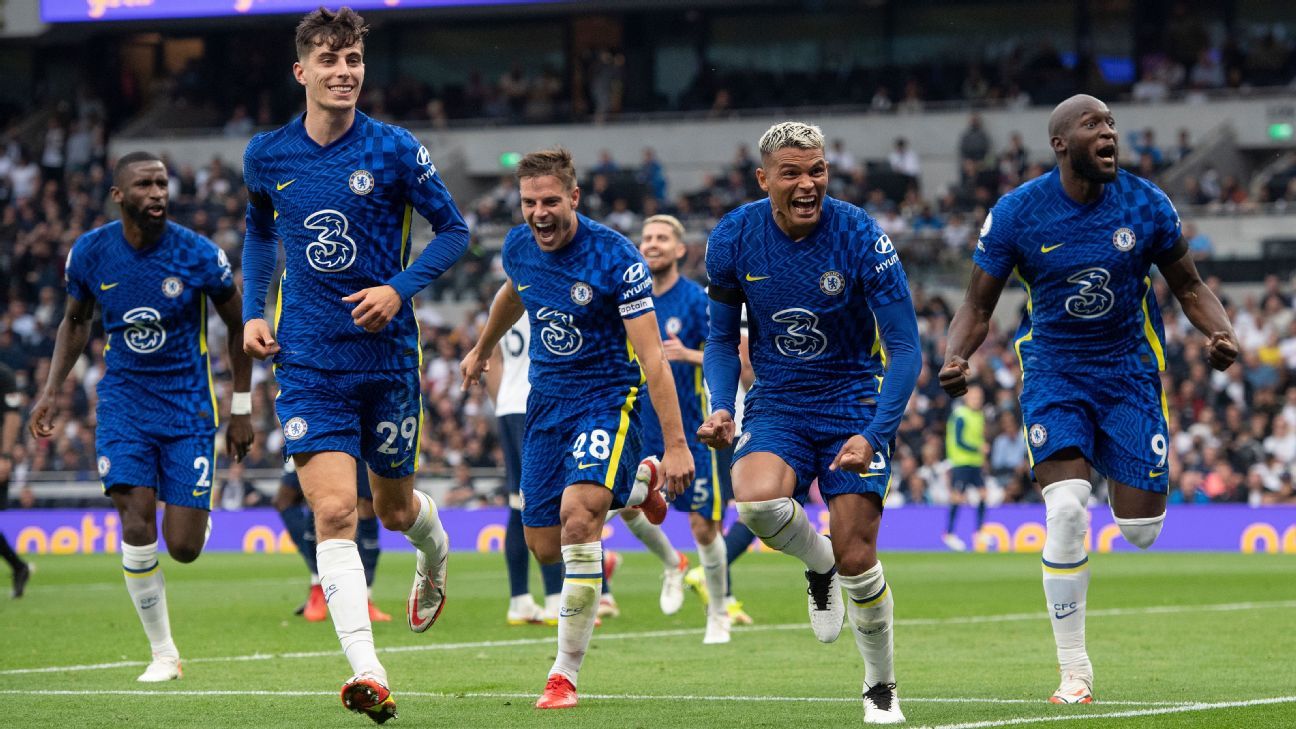The European soccer weekend didn’t disappoint (does it ever?) with a string of notable results and eye-catching performances. Chelsea cruised to victory over Tottenham, Paris Saint-Germain needed a hero (and it wasn’t Lionel Messi) to beat Lyon, and Bayern Munich were at their ruthless best. Real Madrid (who flattered in victory) and Manchester United (who deserved it) won on late, late goals, while Liverpool showed a bit of squad depth vs. Crystal Palace. Meanwhile, Juventus‘ horrible start to the Serie A season continued against Milan, and Borussia Dortmund turned a three-goal lead into a one-goal panic vs. Union Berlin.
– ESPN+ viewers’ guide: LaLiga, Bundesliga, MLS, FA Cup, more
– Stream ESPN FC Daily on ESPN+ (U.S. only)
– Don’t have ESPN? Get instant access
It’s Monday, and Gab Marcotti reacts to the biggest moments in the world of football.
Jump to: Chelsea-Spurs lessons | PSG need work | Real Madrid leave it late | Juventus woe | Man United win | Bayern dazzle | Inter Milan’s rotation | Liverpool keep rolling | Man City stumble | Atletico frustrate | Arsenal win again | Same old Dortmund

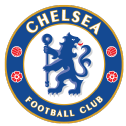 Chelsea nowhere near their ceiling, but it was more than enough vs. Spurs
Chelsea nowhere near their ceiling, but it was more than enough vs. Spurs
Chelsea’s 3-0 win away to Tottenham on Sunday was as comfortable as you’d expect. It was also meaningful, because it came on the back of two less-than-sparkling performances in victories against Zenit St. Petersburg and Crystal Palace. Indeed, while they have yet to concede from open play this season (or at 11 vs. 11, for that matter), there have been more than a few close calls in recent outings. That wasn’t the case at Spurs, though you suspected Thomas Tuchel was taking nothing for granted. He picked the more defensive Cesar Azpilicueta ahead of Reece James down the right flank, presumably to help out with Son Heung-Min (who ended up playing primarily through the middle) and, at half-time, replaced Mason Mount with N’Golo Kante.
For a half, they found the going tough, mainly because Tottenham played at an unexpectedly intense pace. After the break, Chelsea found creating — and converting — chances more straightforward. Still, as solid and clinical as they’ve been under Tuchel, you feel they’re not yet where he wants them to be (or where they could be).
Tuchel’s DNA, going back to his time at Mainz and Borussia Dortmund, is that of a manager who dominates the game, playing mostly in the opposition half. We haven’t quite seen that, even though the raw material is obviously there. Romelu Lukaku is far more than a mere target man/finisher. Between Christian Pulisic, Kai Havertz, Hakim Ziyech, Timo Werner and Mount he has a range of weapons that can be deployed in many different ways beyond transition, but we have yet to see that happen consistently.
In some cases, it’s been injuries, in others overwork, in others still inconsistency. And whatever plan was drawn up last year with Werner or Olivier Giroud at center-forward naturally had to be rewritten with Lukaku’s arrival. There’s a sense that he’s trying to build towards that, with Mount and Havertz joining Lukaku as the first-choice trio, it just hasn’t quite come together yet. If (when?) it does, Chelsea will have several more gears to which they can go.
As for Tottenham, we knew the three straight wins to open up the campaign were a bit of a mirage. In some ways, though, so are the consecutive 3-0 defeats to Chelsea and Crystal Palace. Eric Dier was coming off an injury, Cristian Romero and Giovani Lo Celso had just arrived after their Croatian quarantine, Lucas Moura and Steven Bergwijn were unavailable. Options become limited in those circumstances and the first half showed, at least, that the side have plenty of fight.
The challenge for Nuno Espirito Santo is getting the attack — and, in particular, Harry Kane — to click. Playing him and Lo Celso behind Son is one way to do it, though it leaves you narrow and — call me old school — I feel more comfortable when Kane spends more time closer to the goal.
Tottenham’s level (and realistic expectation) is probably competing for Europa League places. But more than the league finish, Nuno and the club ought to be judged on whether — and how — they grow.
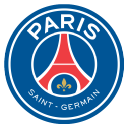 Icardi saves PSG on the day Messi, Neymar, Mbappe trio debuts at home
Icardi saves PSG on the day Messi, Neymar, Mbappe trio debuts at home
0:46
Frank Leboeuf reacts to Lionel Messi being subbed off by Mauricio Pochettino in his home debut for PSG.
The hype-meter was set at 11 as we finally got to see the “MNM” from minute one at the Parc des Princes against Olympique Lyonnais.
Mauricio Pochettino did his best to set the table, giving the trio the added support of Angel Di Maria in a top-heavy 4-2-3-1 formation. Yet other than a couple of Messi chances (one, a free kick that hit the woodwork), PSG produced relatively little in the first half and went a goal down to Lucas Paqueta‘s early strike in the second. It took a generous (read: imaginary) penalty won and converted by Neymar to level the score and a last-ditch, injury time winner from Mauro Icardi to get the three points. (Yes, Icardi — not the Argentine many would have expected given the way he was shopped around in the summer.)
Prior to that, Messi was replaced by Achraf Hakimi, and he gave Pochettino a quizzical look as he came off. It’s likely not a big deal — nobody wants to come off with the game in the balance, least of all Messi — though you can imagine folks turning it into a big deal if the wins don’t roll in.
What’s fairly evident in what we’ve seen of the MNM thus far is that it’s going to be very difficult for this team to create through patterns of play — let alone pressing, which is basically impossible with Neymar and Messi together — with the three of them up front; rather, it will be sparks of individual brilliance. This is likely true against most opponents, whether you throw on another attacking midfielder like Di Maria or not, whether you go with two holding midfielders like Sunday or not, whether you find room for a deeper playmaker like Marco Verratti or Leandro Paredes or not.
It doesn’t mean it can’t work, just that finding the right balance will take time.
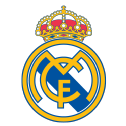 Deja vu for Real Madrid, who turn it around with late goals
Deja vu for Real Madrid, who turn it around with late goals
If you only look at results, Real Madrid are top of the table in La Liga having just beaten Valencia, who are third, while, in the Champions League, they’re coming off a win at the San Siro against Inter, the most dangerous side in their group.
Two big away wins on the bounce, all is well, no? Not quite, because both outings could easily have gone the other way. Both victories came about thanks to late, late goals and at the Mestalla, with a bit of good fortune too (Vinicius Jr’s deflected shot, Giorgi Mamardashvili‘s mistake, Karim Benzema‘s shoulder/header). And both came after the opponent spurned some big chances.
Carlo Ancelotti needs to find the right balance here. Toni Kroos‘ return, when it happens, will help. So too will Ferland Mendy‘s (though until he comes back, it’s probably more rational to go with Miguel Gutierrez). But beyond the personnel, you can’t allow yourself to be rattled by an opponent like Javier Bordalas’ Valencia, who simply outworks and outruns you.
You can win leagues just on the balance of incidents, and Real Madrid have done in the past), but you’re much better off when you can control games. That’s where they need to get to.
 Juve’s nightmare Serie A start continues against Milan
Juve’s nightmare Serie A start continues against Milan
Don’t look now, but after four games, there’s only one team below Juventus in the Serie A table. And to think the stars all seemed to align for them against Milan on Sunday night.
Alvaro Morata gave them an early lead, Milan (already missing both right-back options) lost their defensive leader (Simon Kjaer) before half-time and the much-maligned midfield was doing its job, at least off the ball. It was arguably Juve’s best 45 minutes of football in the past year … and then it all fell apart. Milan equalised, created plenty of other chances and, at the final whistle, could count themselves unlucky to draw 1-1.
Without naming names, Juve boss Max Allegri talked about how some of his players are finding the ball to be “very heavy” right now. Nice imagery, but maybe a rethink would be more useful right now — the sort of rethink that finds space in the side for guys like Matthijs De Ligt, Federico Chiesa and Dejan Kulusevski for more than a few minutes here or there. They didn’t turn into bad players overnight, and given the difficulties this midfield has right now in creating anything, they can at least offer some inspiration in their own way: De Ligt with his passing, the other two with their one-on-ones.
Allegri gives off his chilled vibe and he’s entitled to that; his record at this club speaks for itself. But this is Juve’s worst start in 60 years. The credit he has banked in past years is huge, but it’s not unlimited.
As for Milan, so far so good. They showed they can win without a target man (both Giroud and Zlatan Ibrahimovic were out) and without a sterling performance from Franck Kessie (who was badly off his game). Oh, and in Brahim Diaz, they may well have a budding star. They’re very much among the title challengers.
0:57
Shaka Hislop says Ole Gunnar Solskjaer was rewarded for his trust in Jesse Lingard after his late winner.
It was overshadowed by the refereeing incidents and David Moyes’ decision to send on Mark Noble to take a penalty, but I thought Manchester United bounced back very well from the Champions League defeat against a tough West Ham side. Paul Pogba out wide isn’t a great use of resources (or much of a long-term solution), but it affords you the balance you need in games like this one.
More importantly, they didn’t show any after-effects of the debacle in Bern, especially Jesse Lingard, who bagged the winner. (Others might have walked onto the pitch a bundle of insecurities; not him, and he deserves credit for that.)
As for the penalty incidents, let’s just say this wasn’t a good day at the office. VAR and the referee were clearly taking a nap when Aaron Wan-Bissaka wiped out Thomas Soucek in the United penalty box — after his sending off in the last game, you might have thought Wan-Bissaka might be a bit more risk-averse. Cristiano Ronaldo (who forced some great saves from Lukasz FabianskI) also had a stone-wall penalty call when tackled by Vladimir Coufal, less so with the Kurt Zouma tackle — he appeared to drag his foot to seek the contact — but it was a classic “I’ve seen them given” situation.
There’s no argument from my end on the Luke Shaw one, and to those who (unimaginatively) say “what’s the supposed to do with his arms?!” The reply is simple: don’t keep them out perpendicular to your body. There is no reason for them to be out there, and in the modern game, that will get called every time. (Read this thread from my colleague Dale Johnson on all the calls from that game.)
A final point on Noble. Obviously, if he converts the penalty, there’s no conversation to be had, but because he misses, you get this whole debate about sending on a player “cold” without any warm-up. It’s not a debate. You trust the manager’s knowledge of the player and the player’s knowledge how himself in these situations.
It’s fresh in people’s minds in England because of the penalties that were missed by newly substituted players in the shootout at the Euro 2020 final. But go back six weeks before that, to the Europa League final between Manchester United and Villarreal: the former sent on Alex Telles and Juan Mata, the latter Dani Raba, for the spot kicks. And what happened? They took three of the first four and all of them were successful in converting. Nobody said a peep.
It’s not a bad decision, per se. It can be a wrong decision if the player isn’t mentally prepared, or it can just be randomness. Even great penalty takers like Noble occasionally miss them. And even keepers with poor penalty records — like David De Gea — occasionally save them.
1:00
Craig Burley dismisses Julian Nagelsmann’s “ridiculous” suggestion to bring American football technology into soccer.
When one team is 4-0 up at half-time and goes on to win 7-0, there’s only so much you’re going to learn. Bayern’s huge win showed they’re very much in midseason form and that there was no hangover from their trip to Camp Nou on Tuesday. (Why should there have been? Other than the score, that 3-0 win over Barcelona was almost as one-sided as this one.) Even the positives — like the fact that Leroy Sane, who opened the scoring, is looking more consistent — need to be seen through the lens of newly promoted Bochum, who really aren’t very good.
That said, it’s seven wins on the bounce for Julian Nagelsmann since taking over as manager. I think it’s fair to say he’s settled in and is introducing his tweaks (like the de facto back three when in possession with Alphonso Davies pushing up). And the best news probably came last week, with Leon Goretzka putting pen to paper on his new, long-term contract and ensuring central midfield (with Marcel Sabitzer and Joshua Kimmich too) is covered for the next few years.
 Inter Milan rotate and smash Bologna
Inter Milan rotate and smash Bologna
Teams react to setbacks in different ways. After a defeat like the one at home against Real Madrid in the Champions’ League — a game in which Inter created plenty of chances but fell to a late, late goal — there was always the risk of a hangover. Maybe that’s why Simone Inzaghi made four changes against Bologna, and he was rewarded with a rip-roaring 6-1 win against that suggests Inter have more depth than some would have thought.
Federico Di Marco was tremendous down the left flank and, probably, deserves more space. Denzel Dumfries is no Achraf Hakimi, but slotted in nicely on the right side. And Matias Vecino, something of a forgotten man over the past two seasons, contributed nicely in midfield. The fourth newcomer, Joaquin Correa, came off injured after half an hour, but he’d already shown his worth.
Inzaghi’s Inter may not be the well-oiled machine they were under Antonio Conte, but they’re deep and multi-faceted and look like legitimate contenders.
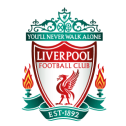 Klopp changes entire back four as “load management Liverpool” win to stay top
Klopp changes entire back four as “load management Liverpool” win to stay top
1:34
Shaka Hislop speaks after Sadio Mane scored his 100th goal for Liverpool in a 3-0 win over Crystal Palace.
Jurgen Klopp made six changes for Saturday’s 3-0 win at Anfield against Crystal Palace: Sadio Mane came in for Divock Origi, Thiago Alcantara for Naby Keita and… the entire back four changed. Yes, you read it correctly. He changed the entire back line for no apparent reason other than rotation. (And no, he’s not keeping them fresh for the League Cup on Tuesday night, either…)
It’s an unconventional approach, but then, Klopp is an unconventional guy, and you wonder if it’s something we’ll see again. Managers love to talk about depth and using their entire squad, but in practice, they also value chemistry, and it’s rare to see such wholesale changes at this stage of the season. Not least because if they get it wrong, they often get hell from media and fans (and sometimes owners too).
Klopp didn’t get it wrong on Wednesday against Milan (they won 3-2, but dominated even as he left out Virgil Van Dijk, Thiago Alcantara and Mane), and they didn’t get it wrong against Crystal Palace in Saturday’s 3-0 win (two of the goals came late, largely because Palace defended stoutly). It will be curious to see if this version of what the the NBA calls “load management” becomes a regular occurrence… and if it pays dividend come March, when legs are heavy and players are running on fumes.
 … but the rotation trick doesn’t work for Man City
… but the rotation trick doesn’t work for Man City
It’s not a perfect parallel, of course, but unlike Klopp, Pep Guardiola made five changes from Wednesday night and Man City were held to a scoreless draw by Southampton. And, to be fair, it could have been worse if referee Jonathan Moss hadn’t somehow decided to reverse his decision to award Southampton a penalty and send off Kyle Walker for a foul on Adam Armstrong.
1:47
Gab Marcotti and Julien Laurens see no winners in the clash between Pep Guardiola and the Man City fans.
As ever, we don’t know what went on between VAR and match official. To me, it looked like a cast-iron penalty and maybe VAR intervened because they felt Moss might reconsider the red card. Instead, he simply changed his mind about everything and wiped out the penalty, too.
Back to Guardiola. Some of his changes, of course, were enforced and you wonder how much his pre-match back-and-forth with his own fans served as a distraction in the build-up. Maybe it was just a bad day at the office, but you don’t expect a Guardiola team to concede three goals in midweek at home and then come within a blown call of defeat against a side like the current version of Southampton.
 Atletico might want to direct some of their anger at Joao Felix (as well as the referee)
Atletico might want to direct some of their anger at Joao Felix (as well as the referee)
The defending LaLiga champions couldn’t go past a 0-0 draw against Athletic Bilbao in a game that was, eventually overshadowed by the referee, Jesus Gil Manzano, who sent off Joao Felix with 12 minutes to go.
The Portuguese starlet, frustrated at what he thought was a cheap yellow card, put his finger to his temple in the classic “crazy” gesture and it was enough for him to get his second booking. Doing something like that in front of the referee is just foolish; expecting him to ignore it is even sillier. In the end, his red didn’t cost Atletico the three points — though we’ve been accustomed to seeing them score late goals and 11 vs. 11, so who knows? — but it did serve as a reminder of why we don’t see more of him on the pitch.
Beyond that, Atletico missed Koke‘s leadership and creativity in the middle of the park. That was an enforced change, though four of Diego Simeone’s other changes were not and they simply made the side more disjointed. Antoine Griezmann had a rough night (again) and with some better finishing from Inaki Williams and/or Asier Villalibre, they would have lost this game.
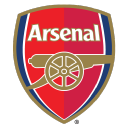 Arteta gets the wins he needed. Now he needs another…
Arteta gets the wins he needed. Now he needs another…
1:40
Shaka Hislop debates whether Arsenal have turned a page after securing back-to-back wins in the Premier League.
After losing their first three outings and failing to score, conventional wisdom had it that Arsenal coach Mikel Arteta ought to be judged over the next three games: Norwich at home, Burnley away and the North London derby against Spurs next weekend. Two-thirds of the way there, he’s in decent shape.
It’s not just the results — though when you have a goose egg after three matches, you need to put points on the board — but also the performances. The back line with Takehiro Tomiyasu, Ben White and Gabriel back in gives you a solid platform — one solid enough, in fact, to play both a front three as well as Martin Odegaard and Emile Smith-Rowe, as Arteta did at Burnley. That set-up in fact speaks to the confidence Arteta seems to have in his approach, which he wants to be positive. Of course, that could all go out the window with a big defeat against Tottenham (though, to be fair, they’re not in great shape either).
Rationally, the game shouldn’t matter any more than any other, but it’s football and we’re not rational and these are rivals. So he’s not out of the woods yet, but he’s finding his way, and he could be playing Spurs at the right time to boost morale further.
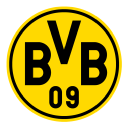 Haaland scores twice, but it’s same old Dortmund
Haaland scores twice, but it’s same old Dortmund
This weekend saw more of the same maddeningly frustrating inconsistency from Marco Rose’s Borussia Dortmund. They race to a 3-0 lead over Union Berlin, everything is going swimmingly and yet they somehow contrive to sweat out the final minutes defending a 3-2 lead before Erling Haaland does his thing, conjuring up an improbable lob to seal the game at 4-2.
Haaland once again has more goals than games since joining Borussia Dortmund and that’s great. But it’s not about him. You can’t rely on him to conjure up magic every match.
Rose set up Dortmund in what looked like a more rational 4-3-3, coaxing both his fullbacks forwards and, at least when in possession, Raphael Guerreiro and Thomas Meunier looked solid. But the inability to manage a three-goal lead and the collective defensive switch-off (which, by the way, is not just on the defenders) has to be a concern.
